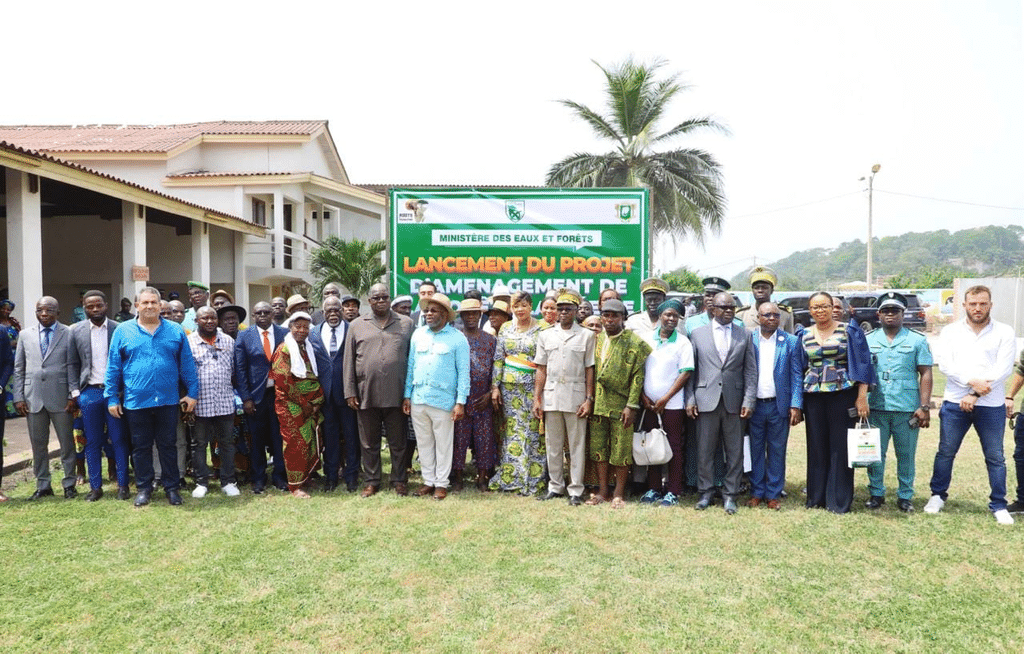The Monogaga classified forest management project was launched on February 10, 2024 by Laurent Tchagba, the Ivorian Minister of Water and Forests. The reserve, established in 1973, will be managed by the Roots Wild Foundation group based in Abidjan, the economic capital of Ivory Coast. The aim is to reconstitute the Monogaga classified forest through agroforestry (association of trees and crops on the same plot of land, editor’s note), conserve forest and wildlife relics, and develop the coastline to make it an internationally renowned tourist destination.
But before this can be achieved, Roots Wild Foundation will analyze the land use, identify the headmen and the agricultural plantations, with a view to defining management objectives. Once a lush forest, the Monogaga Massif (40,000 hectares) is now severely degraded by human activities, particularly those carried out by illegal farmers.
An investment of around 30.5 million euros
“The other spin-offs of this project will be the creation of jobs in ecotourism, the asphalting of the access road to the village of Monogaga, the creation of socio-economic infrastructures, the electrification of villages, and the supply of drinking water to health centers and schools. What’s more, the people already living in these forests will remain there and practice agroforestry, although no other activity apart from agriculture will be authorized”, asserts Laurent Tchagba.
Read Also –
The Ivorian Minister of Water and Forests also estimates the cost of the Monogaga classified forest development project at 20 million CFA francs, or almost 30.5 million euros. The authority adds that the initiative will contribute to the Ivory Coast e government’s ambition to increase forest cover from 10% to 20% of the country by 2030, i.e. to 6.5 million hectares of forest, while maintaining the existing forest intact. To achieve this, the land of elephants plans to reforest 100,000 hectares each year.
Inès Magoum
